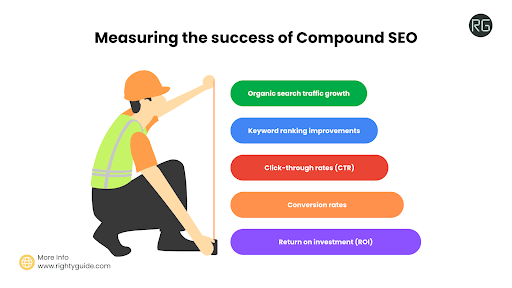Do Blogs Help SEO? Here's What the Experts Say
-
Abdul Wadood

You’ve probably heard that blogging is good for search engine optimization or SEO. But does it really help? You’ve built a great website, and you’re active on social media, but you’re still not ranking as well as you’d like in Google search results. Should you start a blog to give your SEO a boost?
The experts agree that blogging can be very beneficial for SEO if done right. Blogs give you more opportunities to use important keywords, increase the amount of content on your site, build credibility as an industry expert, and get more backlinks. However, simply publishing blog posts isn’t enough. To really move the needle on your SEO, you need to be strategic about your blogging. You need to optimize your posts for search engines and promote your content to drive more traffic.
If you’re looking for ways to improve your website’s SEO, blogging may well be worth your time. But go into it with realistic expectations – blogging alone likely won’t catapult you to the top of Google rankings. With the right strategy and consistent effort, though, blogging can become an important part of your overall SEO success.
Table of Contents:
What Is a Blog and How Does It Help With SEO?

A blog is an online journal that’s updated regularly with articles, also known as blog posts. Blogging helps with search engine optimization (SEO) in several ways:
Increased Website Content
The more content you have on your website, the more opportunities there are for people to find you through search engines like Google. Blog posts, especially long, in-depth ones, add lots of keyword-rich content to your site.
Fresh, Frequently Updated Content
Search engines favor websites with fresh, frequently updated content. Regular blog posts, even just 1-2 short posts per week, signal to Google that your site is actively maintained. This can boost your rankings over time.
Keyword Targeting
You can optimize your blog posts for important keywords related to your business by using those keywords in your post titles, URLs, image filenames, and content. This helps search engines understand what your content and site are about so they can rank you well for those terms.
Internal Linking
Linking to other relevant content on your own website, called internal linking, passes “link juice” and authority to those pages. This boosts your rankings for the keywords targeted on those pages. Blog posts are a perfect place to link internally to products, services, and other category pages on your site.
Social Shares
Valuable, well-written blog content that provides real value to readers is more likely to be shared on social media. Social shares signal to Google that your content is useful and engaging, which can influence your search rankings. The more people link to and share your blog posts, the bigger the impact it has.
In summary, blogging helps with SEO by providing more content, fresh content, optimized content, internal links, and social shares—all of which are factors in how Google determines search rankings. So keep blogging!
Fresh, Unique Content Is Key for SEO
Fresh content is the lifeblood of any successful SEO strategy. Search engines love new, original content because it gives them more to index and rank. As an added bonus, recent content also signals to readers that your site is active and up to date.
To keep the search engines and your readers engaged, aim to publish new blog posts at least once a week or once every other week. While consistency is key, don’t sacrifice quality for quantity. Each new post should provide value to your readers by:
- Teaching them something new. Tutorials, how-tos, and educational content are always a good option.
- Solving a problem they face. Address questions or pain points your target audience deals with.
- Entertaining them. If done well and aligned with your brand, humor and storytelling can work great.
Use keywords strategically
Include your target keywords and phrases in your post titles, headers, and 2-3 times in the body copy. But don’t overdo it, as that can seem spammy to both search engines and readers. Think of keywords as a way to help readers find your content, not as an SEO trick.
Keep your content fresh by revisiting older blog posts and updating them when needed. You can also repurpose content by turning a blog post into an infographic or video. The more high-quality, relevant content you have on your site, the more opportunities there are for people to find you organically online.
So start blogging today, focus on value and keywords, keep it fresh, and your SEO will reap the benefits as a result. The search engines will reward your efforts by sending more organic traffic your way.
Optimize Blog Posts for SEO With Keywords

To optimize your blog posts for search engines like Google, focus on including important keywords and key phrases.
Use Your Main Keyword in the Title and URL
The blog post title and URL (web address) are two of the most important on-page SEO factors. Include your target keyword in the title, as close to the beginning as possible. The URL should also contain the keyword, ideally as the first or second word. For example, if your keyword is “content marketing,” good options would be:
- /content-marketing-guide/
- /the-ultimate-guide-to-content-marketing/
Include Keywords in Your Headers
Use your keyword in H2 and H3 headings throughout the post. Place it as close to the beginning of the headings as possible. Headings help search engines determine what the content is about and what sections are most important.
Use Keywords in the First Paragraph
Include your target keyword or keyphrase in the first paragraph of your blog post. This signals to search engines what the topic of the content is, and that it’s relevant for that keyword. Repeat it a few times in the first 100 words or so, but don’t overdo it.
Include Related Keywords and Synonyms
Use related keywords, synonyms, and semantic phrases throughout your post to cover the topic thoroughly. For example, for “content marketing,” you could include:
- Content strategy
- Blog Promotion
- Content creation
- Digital marketing strategy
Include Keywords in Image Alt Text
Optimize images for SEO by including keywords in the alt text. The alt text is read by search engines and describes the image for those unable to see it. For example, use “content marketing strategy image” or “blogging for business alt text” for images in a post on content marketing.
Following these tips will help search engines determine whether your blog post is relevant and useful for your target keywords. Be sure to also promote your content on social media to build links and gain more traffic. With time and consistency, you’ll become an authority in your niche!
Drive Traffic to Your Website Through Blogging
Blogging is one of the best ways to drive more organic traffic to your website. By publishing blog posts on a regular basis, you give search engines like Google more pages to index, which helps increase your site’s authority and rankings over time.
Build Backlinks
When other sites link to your blog posts, it helps build high-quality backlinks that pass “link juice” to your site. This signals to Google that your content is useful and credible. Reach out to other bloggers and ask them to link to your content in their posts. You can also comment on other blogs in your industry and include a link back to your relevant blog posts.
Improve SEO
Blogging gives you more opportunities to use important SEO techniques like optimizing your page titles, meta descriptions, header tags, and internal linking. You can include strategic keywords in your posts and naturally link internally to other content on your site. This interlinking structure helps search engines crawl your site and reinforces the relevance of pages to users.
Increase Social Sharing
Blog posts that provide value to your readers are prime for social sharing. When people share your posts on social media platforms like Facebook, Twitter, and LinkedIn, it exposes your content and brand to new potential customers and followers. This additional exposure and traffic, combined with the SEO benefits, leads to higher rankings in search results over time.
Build Your Email List
Include calls-to-action in your blog posts inviting people to subscribe to your email newsletter. Blogging gives you the opportunity to provide useful content to readers and build a loyal following. An email list allows you to stay in touch with your audience through a channel you own. You can send newsletters, promotions, product updates, and more. Growing your email list should be a top priority for any business.
Blogging may require an initial time investment, but the long-term benefits to your SEO and business growth are well worth the effort. Publishing high-quality, relevant content on a consistent schedule is one of the best ways to drive more traffic to your website.
Expert Tips for Maximizing Your Blog's SEO
If you want to rank higher in search engines like Google, optimizing your blog for SEO is key. Here are some expert tips to maximize your blog’s search engine optimization:
Choose a keyword-rich domain name
Pick a domain name that includes important keywords related to your blog topic. For example, if your blog is about dog training, choose something like ‘dogtrainingtips.com’ rather than ‘myblogsite.com’. Keywords in the domain help search engines determine what your site is about.
Use keyword-optimized page titles and meta descriptions
The page title and meta description are two of the most important on-page SEO elements. The page title appears at the top of the browser and search results, so include your target keyword and blog name. The meta description is the short summary in search results, so make it compelling while including keywords. These help searchers determine if your content is relevant.

Publish new blog posts regularly
Post new content at least once a week or every other week. Search engines favor sites that are actively updated. Re-sharing old posts or republishing content from other sites will not have the same effect. Provide value to readers with posts that teach them something new.
Use alt text on images
Add alt text, or alternative text, to all images in your blog posts. Alt text helps search engines understand what images are about, even if they can’t see them. It also helps visually impaired users understand images. Include your target keyword in the alt text when possible.
Internal linking
Link to other relevant content within your blog. This helps search engines discover your other posts and understand how they relate. It also provides more value for readers. But don’t overdo internal links, or it may seem spammy.
Be active on social media
Promote your new blog posts on social media platforms like Twitter, Facebook, and LinkedIn. This exposes your content to new potential readers and signals to search engines that your content is popular and important. But don’t just spam links, engage with your followers and share other useful content too.
Conclusion
So there you have it, According to the experts, blogging can absolutely help with SEO and ranking higher in search engines. While blogging itself won’t directly increase your rankings, the inbound links, social shares, and long-form content can. The key is to blog consistently, focus on quality over quantity, and promote your posts. If done right, blogging is a long-term strategy that can pay off. Give it a shot—start that blog, share your expertise, engage your readers, and see where it takes you. Who knows, it could lead to new opportunities and open doors you never imagined. The only way to find out is to take that first step. So what are you waiting for? Start blogging and boost your SEO today!
Abdul Wadood

